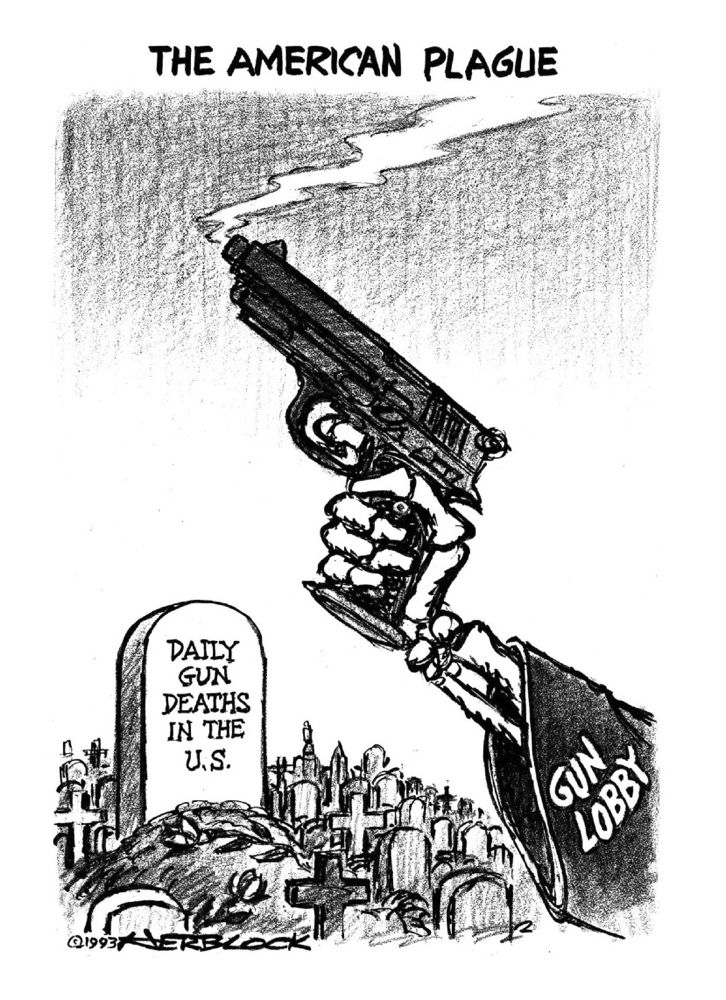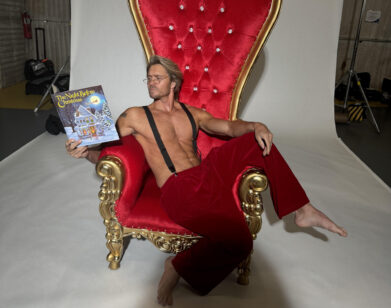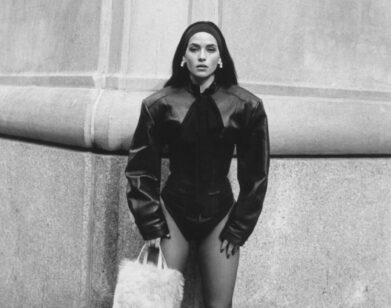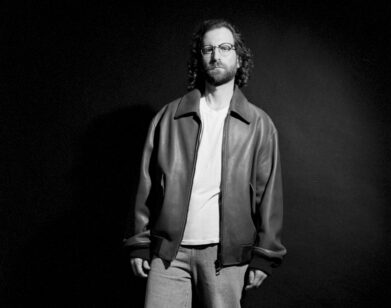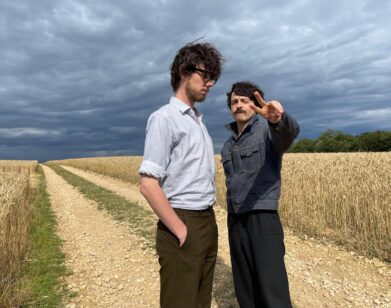The Political Power of the Pencil
A ruddy-faced Joseph McCarthy caught with doctored photos. A defeated Richard Nixon dangling between audio tape reels. Bill Clinton precariously balancing both Monica Lewinsky and the Budget. These are just a few of the iconic images drawn by Herbert “Herblock” Block in his half-century tenure as the Washington Post‘s political cartoonist. They’re also fodder for the new documentary, Herblock: The Black & The White, from father-son production team George Stevens, Jr. and Michael Stevens, which premiered on HBO this week. Though Michael, the younger Stevens directs, the Academy Award-winning George Stevens Jr was a longtime friend and neighbor of Herblock himself, and was instrumental in getting the project to the screen.
Over the course of the film’s relatively speedy hour-and-a-half runtime, viewers are treated to a cavalcade of news industry legends including Tom Brokaw, Carl Bernstein, and Bob Woodward (not to mention Herblock’s spiritual heirs at The Daily Show) talking about the impact Herblock had as a gadfly to 12 U.S. presidents. Most interesting, however, is the choice to portray Herblock, who passed away in 2001, by actor Alan Mandell. Though it could have proved to be a controversial, or even distracting, cinematic device, Mendell does such a great job delving into Herblock’s incisive wit and warm humanism that it’s easy to forget he isn’t the real deal. (At a recent premiere, one elderly friend of of Herblock was even convinced it was the man himself.) We talked to George Stevens, Jr. about bringing Herblock to the screen, his personal friendship with Block, and introducing a legendary journalist to a new generation.
NATHAN REESE: Before getting to the documentary itself, can you tell me a little bit about your personal relationship with Herb?
GEORGE STEVENS, JR.: I knew Herb—he was a neighbor, someone I really admired, and a friend. He’d come by the house sometimes. But before I went to Washington in ’60s, I’d known his cartoons when I was living in Los Angeles during the McCarthy period. You’d just open the Washington Post—as they say in the film—and you’d always turn to Herb. He was in the center of the editorial page, and sometimes he was just breathtaking he was so good. I’d get to the office and pick up the phone and call him and say “Jesus, Herb, you knocked it out of the park!” He’d just chuckle. He was this unassuming, warm guy, but he had this razor-sharp stiletto instinct for capturing hard truth.
REESE: Is there an early strip that sticks out to you as a favorite?
STEVENS: One goes back to Richard Nixon coming out of the sewer with his five o’clock shadow. And then when he was elected President, the thing with the barber shop: “Everyone deserves a clean shave,” and Herb gave him a clean start.
REESE: How did you get involved with making the documentary?
STEVENS, JR: I was asked to give a speech at the Herblock lecture by the Herblock Foundation in 2008. I just said, there ought to be a film, so my son Michael and I decided to make one.
REESE: Herblock meant so much to so many people. How did you choose who you would interview for the film?
STEVENS: Fortunately I knew a lot of them so I was able to just call them and ask them. Benjamin C. Bradlee, Carl Bernstein, Bob Woodward, Richard Cohen, were all people I knew in Washington. [Tom] Brokaw is my good friend, and Tom Friedman is my golf buddy. So it was just a matter of Michael and I deciding what forces were important.
REESE: I thought it was an interesting choice to have an actor portray Herblock.
STEVENS: Michael was very much on the case of structuring the movie and digging into the cartoons. At one point he had done an assembly—a first cut, if you will—and Michael came in and said, “You know what this film is missing: Herb’s voice.” He wrote 12 books. Then we said, how do we get his words into the the film and set about finding an actor.
REESE: As someone who knew Herb, what do you think of Alan Mandell’s potrayal?
STEVENS: You know, it wasn’t our intention, but just last night we had a screening in Washington. We were giving a woman a ride home who knew Herb, and she thought it was Herb. The guy has an uncanny resemblance that was kind of beside the point —we’re not trying to fool anybody. But it’s fortunate that he has a lot of Herb’s appearance and he was able to capture his temperament. That way Herb had of chuckling.
REESE: Considering that there’s such a large volume of work Herblock created over the years, how did you decide what to focus on?
STEVENS: It’s that dilemma of selection. I guess it was in part trying to cover areas that he covered, and within that to choose between all the different opportunities. Is it 10 thousand [comics total]? We had access to all of them.
REESE: Now it’s less and less likely that someone might even subscribe to a print paper. What did you want to convey to people coming to his work for the first time?
STEVENS: Well, I think to have them see and understand the man. He was a rigorous journalist who drew cartoons. His cartoons were founded on fact and truth. And I think that’s an important thing for audiences today to see. I think it’s an important thing for young journalists to see. Last night [journalist] Al Hunt saw the film for the first time, and said to me, “My class is going to have to see this film.” He’s teaching journalism. And many people feel that it’s a very important of expression that should be seen.
REESE: Do you see anyone working now with political satire as following in Block’s footsteps?
STEVENS: I don’t think it’s a lost art form, but it’s unlikely anyone will ever aggregate the power that Herb had. Six days a week —seven at one time, at the Washington Post and 110 newspapers in the United States. But there are good cartoonists. There’s a fellow, Matt Wuerker, do you ever seen him at Politico? There’s Tom Tolls at the Post. But I think the real reach of satire is in the hands of Jon Stewart.
REESE: I did really enjoy watching Stewart talk about Block—you could tell he was a big influence on him.
STEVENS: Wasn’t that nice?
REESE: Though you would probably call him a liberal, Herblock was interesting in that he didn’t seem to line-up with modern divisions of left-right politics.
STEVENS: Here’s this young cartoonist who is just so straight-on taking on Hitler and realizing, from Chicago, the menace that he represented. And then a generation or two later [being against Vietnam] while working at the Washington Post where the editorial page supported the war. It was like Herb knew what was going on in the White House—he did that cartoon of Ho Chi Minh and Lyndon Johnson imprisoned together.
REESE: Early on in the movie there’s a recreated scene with a young Block drawing on the sidewalk. Was that a true story?
STEVENS: Yes. It was known that he drew the Kaiser on the sidewalk. When asked why he did it he said, “So people can walk on him.” They said, “Won’t they blot out the cartoon?” And he said, “I can draw it again.”
REESE: Was there anything you learned about Herb while making the documentary that you didn’t know about him before you started the project?
STEVENS: Well, the whole thing of his wealth. He wore gabardine jackets and a little felt hat. He played golf at Haines Point—a public course. Didn’t own a car. And you were shocked that he was a person of means. But, you know, I was pretty conversant with his character before going into it.
REESE: Even though Herblock died before the Occupy movement, the movie ends with an indictment of corporate greed. What do you think Herblock might have though our current economic issues?
STEVENS: Herb said that it was his job to think about the little guy. I think that’s really an answer to your question, and you can extrapolate from that what Herb would think about questions today. He’s known more for his scabrous portraits of people who are off the track, but very important to his work was his humanity. You can think about his cartoons of the unemployed during the depression, very strong pleas for equality in his cartoons about race and children who are going to disadvantaged schools. Herb had presaged this concern about equality.
HERBLOCK: THE BLACK & THE WHITE IS NOW AVAILABLE ON HBO. FOR MORE ON THE FILM, VISIT ITS WEBSITE.

